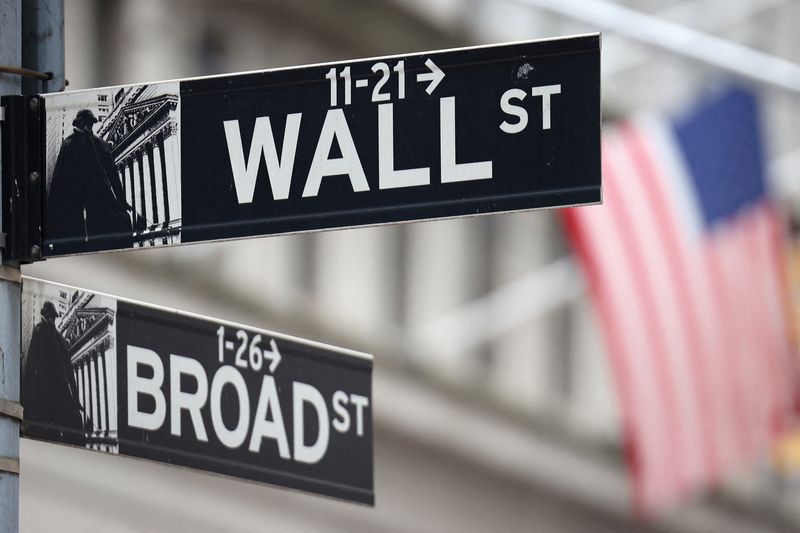
(Reuters) – U.S. stock index futures were lower on Thursday in light trading volumes after the Christmas holiday, as investors took stock of their portfolios and looked for a boost for the final month of the year from the so-called Santa Claus rally.
Heavyweight Nvidia (NASDAQ:NVDA) dropped 1.1% in premarket trading, while Google-parent Alphabet (NASDAQ:GOOGL) shed 0.5%.
At 05:03 a.m., Dow E-minis were down 146 points, or 0.33%, S&P 500 E-minis were down 26.75 points, or 0.44% and Nasdaq 100 E-minis were down 118.75 points, or 0.54%.
Markets in London and parts of Asia were closed on Thursday.
The S&P 500 and the Nasdaq wrapped up Tuesday’s truncated session with a third straight session of gains lifted by megacap and growth stocks.
Gains in Apple (NASDAQ:AAPL), Tesla (NASDAQ:TSLA), Alphabet, Amazon (NASDAQ:AMZN), Nvidia, Microsoft (NASDAQ:MSFT) and Meta Platforms (NASDAQ:META) accounted for more than half of the S&P 500’s 28.4% total return this year, according to S&P Dow Jones Indices Senior Index Analyst Howard Silverblatt.
Without the Magnificent Seven stocks, the benchmark index’s total return would have been 13.2% in 2024, Silverblatt added.
U.S. stocks have hit a speed bump this month following election-led gains in November as they contend with the Federal Reserve’s projection of fewer interest rate cuts in 2025.
Investors are hoping for a typically strong finish in the final days of the year – called “Santa Clause rally” – a pattern attributed to low liquidity, tax-loss harvesting and investing of year-end bonuses.
The S&P 500 has gained an average of 1.3% in the last five trading days of December and the first two days of January since 1969, according to the Stock Trader’s Almanac. A December without a Santa rally has been followed by a weaker-than-average year, data from LPL Financial (NASDAQ:LPLA) going back to 1950 showed.
Labor Department’s data on weekly jobless claims is due before the market opens on Thursday although claims have entered a period of volatility, which could make it challenging to get a clear view of the job market.
Separately, major banks and business groups sued the Federal Reserve on Tuesday, alleging the U.S. central bank’s annual “stress tests” of Wall Street firms violate the law.






